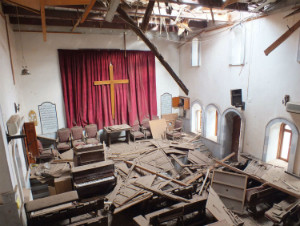I have been dismayed by comments made by politicians and media commentators in response to Prime Minister Tony Abbott’s flagging last week that the government would focus on assisting Christians and other persecuted minorities in the Syrian refugee crisis.
The leader of the Greens, Richard Di Natale hit back at the Prime Minister’s remarks, stating that his comments had “more than a hint of the White Australia Policy about it.”
remarks, stating that his comments had “more than a hint of the White Australia Policy about it.”
Really? Since the Greens are purportedly interested in social justice, I am sure that Senator Di Natale is well aware that Christians in the Middle East have been, and are among the most persecuted peoples over the last century. At the start of the 20th Century, Christians made up over 20 per cent of the population of the Middle East. Unthinkable today, I know. Now, they make up less than 5 per cent.
Does Richard Di Natale believe that Christians in the Middle East are not sufficiently needy of assistance? Are Middle Eastern Christians less worthy than the Kosovars or the East Timorese who were recognised by the Greens as people under threat, and received assistance from the Howard Government in the late 1990s?
Richard Di Natale and the Greens are not ignorant. They know enough about history and they know the atrocities and the dispossession which is happening to Christians, not only under the rule of the Islamic State, but in supposedly ‘friendly’ and ‘civilised’ Islamic nations such as Egypt and Saudi Arabia.
No, Richard Di Natale and his ilk will continue to deflect from the plight and persecution of Christians in the Middle East, until they are completely eradicated. But be sure they will have a special interest in other groups. They just need to be non-Christian, and preferably non-western or white.



